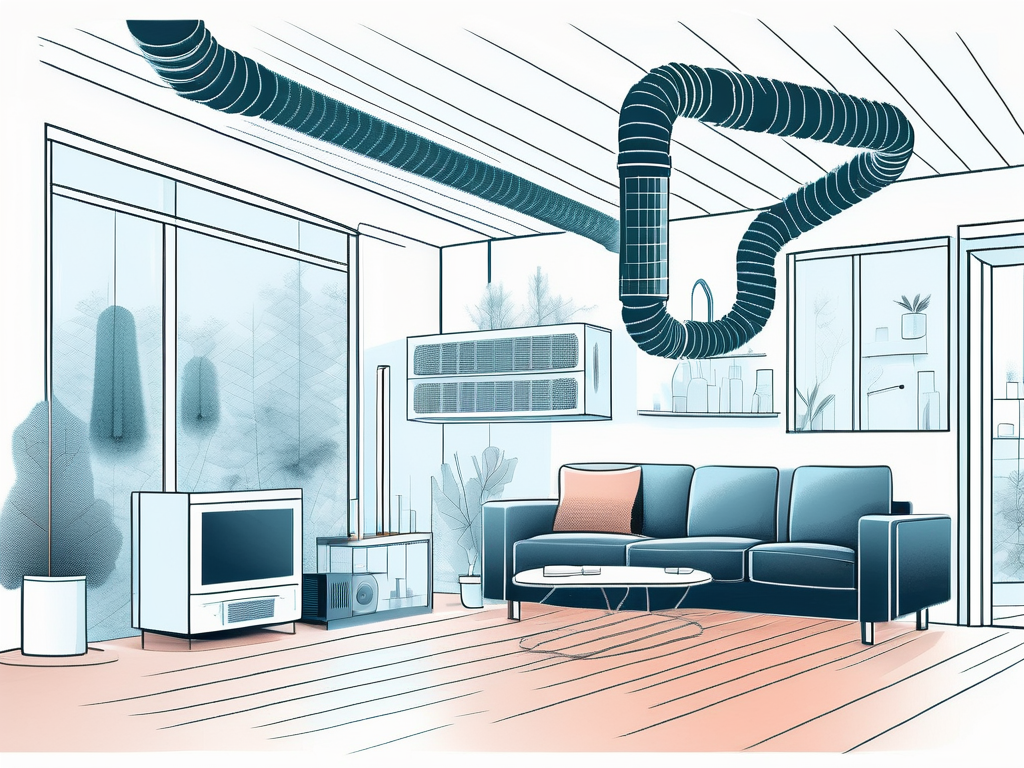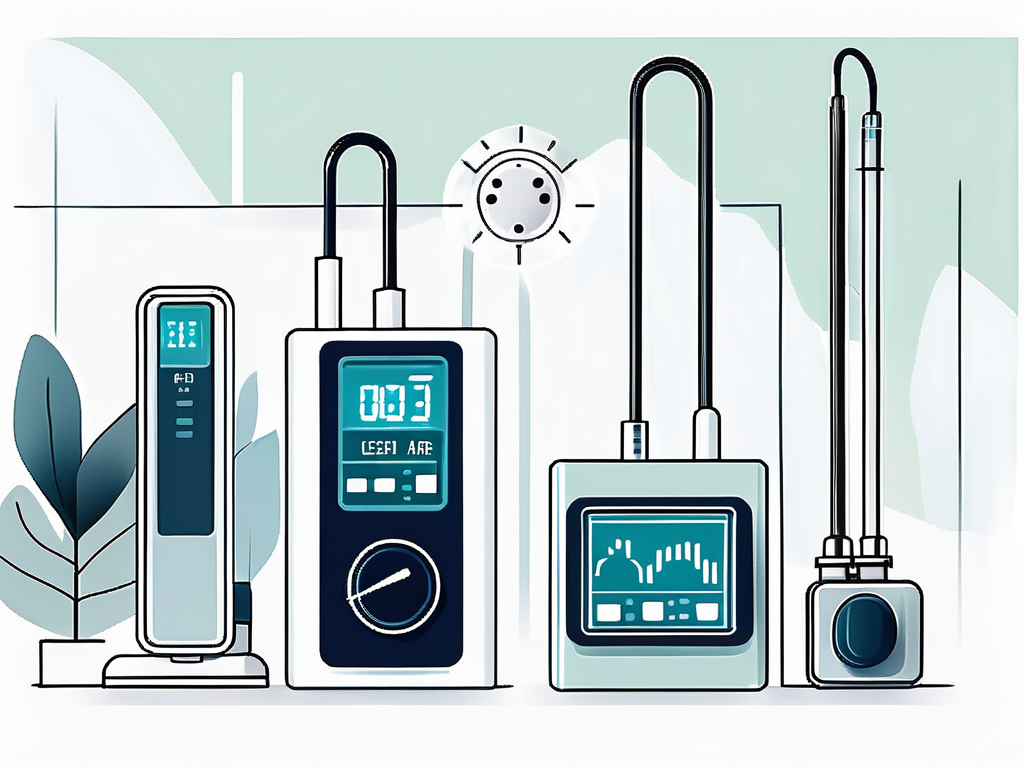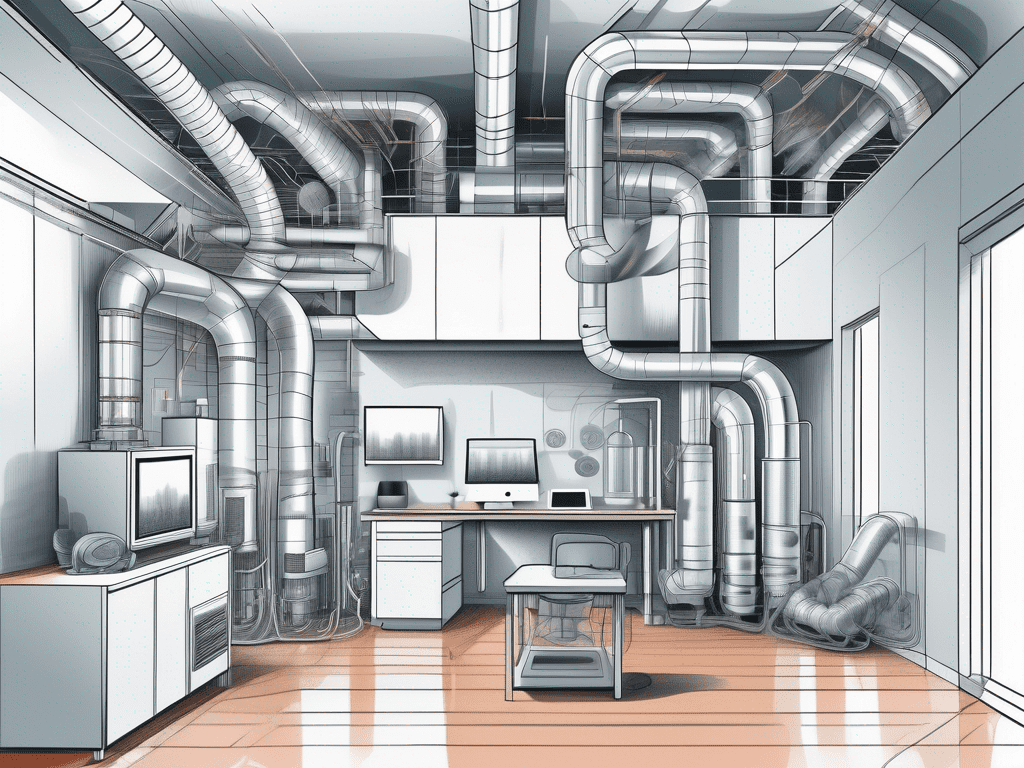Indoor air quality is a significant factor in maintaining a healthy and comfortable living or working environment. It affects our overall well-being, productivity, and even our sleep quality. Therefore, hiring an indoor air quality specialist is essential to ensure that the air we breathe is clean and free from contaminants.
In this ultimate guide, we will explore the role of an indoor air quality specialist, identify common indoor air quality issues, and provide guidance on how to find and evaluate the best specialist for your needs.
Understanding the Role of an Indoor Air Quality Specialist
An indoor air quality specialist is a highly trained professional dedicated to the assessment, analysis, and enhancement of indoor air quality. With a keen eye for detail, these specialists meticulously examine indoor environments to pinpoint potential sources of pollution, which may include mold, allergens, volatile organic compounds (VOCs), and other harmful contaminants. By employing cutting-edge techniques and equipment, they strive to create an atmosphere that promotes the well-being and safety of occupants.

Furthermore, an indoor air quality specialist plays a crucial role in not only identifying existing pollutants but also in preventing future issues from arising. Through their expertise, they can offer valuable insights into best practices for maintaining a healthy indoor environment over the long term.
The Importance of Indoor Air Quality
Indoor air quality holds immense significance as individuals spend a substantial amount of time inside various indoor settings, be it their residences or workplaces. Substandard indoor air quality can give rise to a myriad of health concerns, ranging from common allergies to more severe respiratory ailments and chronic conditions. Beyond physical health implications, poor indoor air quality can also affect cognitive functions, mood stability, and overall quality of life.
It is essential to recognize the pivotal role that indoor air quality plays in shaping our daily experiences and overall health outcomes. By prioritizing and maintaining high indoor air quality standards, individuals can significantly enhance their quality of life and well-being.
Key Responsibilities of an Indoor Air Quality Specialist
An indoor air quality specialist shoulders a diverse array of responsibilities aimed at optimizing air quality within indoor spaces. Their multifaceted tasks encompass:
- Conducting comprehensive indoor air quality inspections and assessments
- Precisely identifying and quantifying various air pollutants present in the environment
- Devising effective strategies to mitigate indoor pollution and enhance air quality
- Installing and maintaining state-of-the-art ventilation and filtration systems
- Offering expert recommendations for sustaining healthy indoor air quality levels
- Continuously monitoring and testing air quality post-implementation of improvements
Identifying Your Indoor Air Quality Needs
To hire the right indoor air quality specialist, it is essential to understand your specific needs and concerns. This will help you communicate effectively and ensure that the specialist can address your unique situation.

When considering your indoor air quality, it’s important to recognize that various factors can impact the air you breathe within your home or office space. From the presence of volatile organic compounds (VOCs) emitted by household products to the accumulation of dust and pet dander, each element plays a role in determining the overall air quality.
Common Indoor Air Quality Issues
Before seeking assistance from a specialist, it is helpful to familiarize yourself with common indoor air quality issues. These may include:
- Mold and mildew growth
- Poor ventilation
- Dust and allergens
- Chemical pollutants
- Pet dander
Moreover, factors such as inadequate ventilation systems or high humidity levels can exacerbate these issues, leading to a more significant impact on your indoor air quality. Understanding these common problems can empower you to take proactive steps towards creating a healthier indoor environment for yourself and your loved ones.
Determining Your Specific Needs
Once you are aware of the common issues, assess your specific needs. Do you suspect mold growth? Are you experiencing respiratory symptoms? Are you concerned about environmental allergies? Understanding your needs will guide your search for the right specialist.
Furthermore, it’s crucial to consider the layout and design of your space, as certain areas may be more prone to poor air circulation or pollutant accumulation. By evaluating these aspects alongside your specific concerns, you can provide valuable insights to the indoor air quality specialist, enabling them to tailor their services to meet your unique requirements.
Finding a Qualified Indoor Air Quality Specialist
When it comes to finding a qualified indoor air quality specialist, there are several avenues to explore. Ensuring the air you breathe indoors is clean and healthy is crucial for your well-being, making the expertise of a specialist invaluable.
One effective way to locate a reputable indoor air quality specialist is by reaching out to local environmental agencies or organizations that focus on air quality. These entities often maintain lists of certified professionals who specialize in assessing and improving indoor air quality.
Where to Look for Specialists
Start by conducting online research to find local specialists with expertise in indoor air quality. Look for certifications, affiliations, and industry recognition. Additionally, ask for recommendations from friends, family, or colleagues who have previously hired such specialists. Remember, word-of-mouth referrals can provide valuable insights into the quality of service offered by a specialist.
Furthermore, consider contacting your local health department or environmental protection agency for recommendations on reputable indoor air quality specialists. These governmental bodies often work closely with qualified professionals in the field and can point you in the right direction.
Essential Qualifications to Look For
When evaluating potential indoor air quality specialists, consider the following qualifications:
- Certifications and licenses related to indoor air quality
- Years of experience in the field
- Positive customer reviews and testimonials
- Knowledge of relevant regulations and guidelines
- Access to advanced air quality testing equipment
Additionally, inquire about the specialist’s familiarity with emerging technologies and trends in indoor air quality assessment and improvement. A commitment to staying current with industry advancements demonstrates a dedication to providing the most effective solutions for your indoor air quality concerns.
Evaluating Potential Indoor Air Quality Specialists
Once you have a list of potential specialists, it is essential to evaluate them thoroughly. This will help you assess their expertise and ensure they can address your specific needs.
Choosing the right indoor air quality specialist is crucial for maintaining a healthy indoor environment. Not only can they help identify and address potential air quality issues, but they can also provide valuable guidance on preventive measures to improve overall air quality in your space.
Reviewing Credentials and Experience
Begin by reviewing the specialists’ credentials, certifications, and licenses. Look for evidence of ongoing professional development and specialized training. Additionally, inquire about their experience in the field, including the types of projects they have worked on and their success rate in resolving indoor air quality issues.
Experience matters when it comes to indoor air quality specialists. A seasoned professional will have encountered a wide range of air quality issues and developed effective strategies for addressing them. By delving into their past projects and success stories, you can gain insight into their capabilities and approach to solving indoor air quality problems.
Asking the Right Questions
Prepare a list of questions to ask the indoor air quality specialists during the evaluation process. Some important questions to consider include:
- What methods do you use to assess indoor air quality?
- Have you worked on projects similar to mine before?
- Can you provide references from previous clients?
- What steps do you take to address specific indoor air quality issues?
- What is your approach to ongoing air quality monitoring?
Asking detailed questions during the evaluation process can help you gauge the specialist’s knowledge and expertise in indoor air quality assessment and remediation. Their responses can provide valuable insight into their problem-solving skills and their ability to tailor solutions to meet your specific needs.
Making the Final Decision
After evaluating the potential indoor air quality specialists, it is time to make the final decision and hire the most suitable candidate.

Choosing the right indoor air quality specialist is crucial for ensuring a healthy and safe indoor environment for you and your loved ones. In addition to considering their qualifications and experience, it is essential to delve deeper into their methodologies and approaches towards indoor air quality assessment and improvement.
Comparing Quotes and Services
Request detailed quotes from the remaining specialists and compare them carefully. Consider not only the cost but also the services included, such as the scope of inspections, air quality testing, recommendation reports, and ongoing support.
Furthermore, inquire about the technologies and tools they utilize for air quality assessments. Understanding their equipment and techniques can give you a better idea of the thoroughness and accuracy of their evaluations.
Considering Customer Reviews and Testimonials
Take into account the feedback and testimonials from previous customers. This will provide insights into the specialists’ professionalism, reliability, and overall customer experience. Online review platforms can be an excellent resource for gathering such information.
Moreover, don’t hesitate to ask for references from the indoor air quality specialists. Speaking directly to past clients can give you a more personalized understanding of the specialist’s work ethic and the results they deliver.
By following this ultimate guide, you can confidently select and hire the right indoor air quality specialist. Remember, the health and well-being of your indoor environment are worth the investment in hiring a qualified professional.




